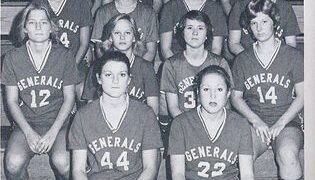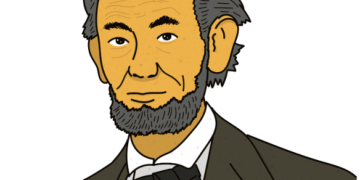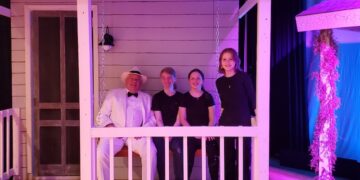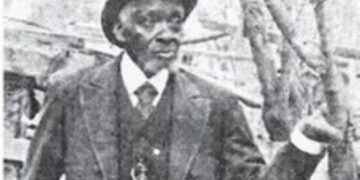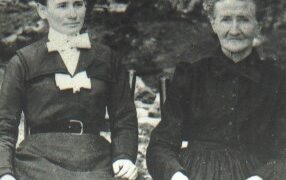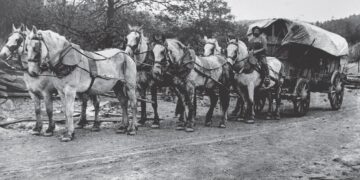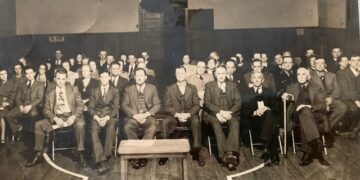Yasmin Zaher and The Coin
Yasmin Zaher is a thirty-three year old Palestinian, whose family lived and prospered in Palestine both before and after Israel was established in 1948. She was born in Jerusalem but left the area when she was about 18. Zaher has said that she comes “from an upper class background. I’m privileged, but a lot of unfair things have happened to me in my life.” After she left Palestine, she says, “I became diasporic in my life, and it was a learning experience for me.”
Moving to the United States, she earned a B.S. degree in biomedical engineering from Yale University, where she describes her time as idealistic: “You think the world is a beautiful place when you’re there. And I think a lot of us had big personal crises after graduating, realizing what the world really was.” Zaher later added an MFA in creative writing from the New School in New York City and began working as a journalist0.Today she lives in Paris, because, she says, she married a Parisian.
The Coin, published earlier this year is her first novel, an original work that has received strong reviews. The novel does not deal with the current situation in Israel, but its protagonist is a wealthy unnamed woman, who, like Zaher, is Palestinian. Also like Zaher, she is new to NYC and also, like her creator, a middle-school teacher. The narrator’s being unnamed seems relevant to her existential condition—she has almost no sense of personal identity. Of leaving her nameless, Zaher says, “The names [of the other characters] came to me very intuitively except her name. It was blank, and it’s probably because I identify very strongly with her. “
Like Zaher, her narrator has grown up in Palestine in a wealthy family. When her parent die in a car accident before she is ten years old, the girl and their brother inherit “eight million seven hundred and fifty-five thousand US dollars.” As adults, they continue to live in luxury, though her part of the inheritance remains in trust; her older brother controls the purse strings, sending her a large allowance every month.
Because of her wealth, the narrator has traveled widely and developed expensive tastes.
She buys only the most expensive clothing, cosmetics, and exotic perfume. One of her most prized possessions is the Birkin handbag (from Hermés) that had been her mother’s—It will feature in her later adventure in Europe. All of this luxury may be an attempt to hide her outsider status, to declare her existence in a culture that ignores her.
When she was in Cuba with her most recent lover, Sasha a Russian entrepreneur, he suggested that she move to New York City to try to focus her life. She takes his advice. The novel opens in September 2016 just after the narrator has taken a job as an English teacher at Franklin, a private middle-school for boys. The school enrolls poor but talented young men who, otherwise, would not be able to achieve a top education. From the beginning, the narrator enjoys interacting with her students, especially the talented eighth graders. She is unorthodox but creative in her teaching methods and seems accepted by the staff of Franklin; however, she has no close friends other than Sasha who lives nearby. She clearly asserts, however, that this relationship has ended: “Sasha was the last remaining [lover] in my life, but I have no sexual desire for him.”
Soon after she begins teaching at Franklin, the narrator meets a man whom she calls ”Trenchcoat,” because, when she meets him, he is wearing the expensive Burberry trench coat that that she had ruined and discarded. This guy is a near homeless con man who moves into her apartment as a convenience for himself—being homosexual, he has no interest in a sexual relationship with her. They travel to Europe (She pays for it) over the Christmas break, a trip centered on his scheme for buying expensive handbags like her Birkin to resell. When that fails, their weird relationship ends.
From the beginning of her narration, the narrator’s neuroticism is clear. A highly sexual being, she openly describes her life as an independant woman who can do whatever she wants with whoever she chooses, but genuine love has no part in these encounters. She is so obsessed with phycial cleanliness that she literally scrubs skin cells off her body. She also develops an obsession with the coin she swallowed as a child, one that was never recovered. She decides that the coin is lodged in an unreachable square on her back. Living in an apartment in a part of Brooklyn that features all types of people and much urban filth, the narrator gradually deteriorates. Zaher follows her narrator’s downward spiral from obsession to near madness.
Written in a highly clipped style—a series of untitled and unnumbered vignettes—the novel is easy to read. Zaher covers a time span of less than six months. The narrator’s comments on her past life help explain what she has become. Her life and experiences are completely different from those of the middle-class reader, but through the narrator’s exotic story, we learn much about both the mindset of the rich and the alienation outsiders feel in contemporary America. Zaher herself has stated her intentions for the novel: “It is about privilege and it’s about New York. What is it like to be in this contemporary culture of culture and what is it doing to people. It’s destroying people’s bodies and health.” The Coin is not for the general reader, but. has unique appeal.




